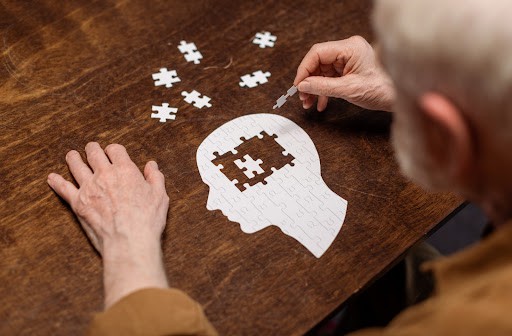Dementia or Alzheimer’s can make it difficult to live independently. Your loved one may need help eating, dressing, walking, and completing other daily tasks.
This disease can even affect everyday communication, making it harder to speak with them. If you have a parent with dementia, how can you talk in a way that avoids potential confusion?
Continue reading to learn more about dementia and Alzheimer’s, including how you can speak to your loved one effectively.
What Is Dementia?
Dementia is an umbrella term for several medical conditions. Abnormal brain changes cause a decline in someone’s cognitive abilities. Many types of dementia can progress with time, worsening someone’s cognitive abilities until they struggle to live their daily life independently.
Different types of dementia include:
Besides affecting someone’s memory, dementia affects their behavior, feelings, and relationships. Dementia can develop unnoticeably in its early stages, but someone may struggle more as time goes on. Dementia symptoms can vary, but common examples include:
- Problems with short-term memory
- Problems with remembering appointments
- Struggles with paying bills
- Struggles with planning & preparing meals
What Is Alzheimer’s Disease?
Alzheimer’s is the most common form of dementia, making up 60–80% of dementia cases. This disease progresses, meaning that memory loss worsens with time. While our brains change with time, Alzheimer’s is not a normal part of aging.
Alzheimer’s typically affects the part of the brain responsible for learning first. As symptoms progress, someone may struggle with disorientation, mood and behavior changes, progressive confusion, suspicions about family and friends, memory loss, and difficulty speaking, swallowing, and walking.
How Dementia Affects the Brain
Dementia affects how someone’s brain cells (neurons) communicate with each other. Dementia damages the brain, making it difficult for neurons to work together. This damage worsens as dementia progresses, affecting other parts of the brain.
Someone with dementia will struggle with memory, language, reasoning, and social behavior. With time, damage to the brain causes someone to lose the ability to take care of themselves, making independent living difficult or even dangerous.
Dementia not only places stress on the person affected but also on their family. If you have a loved one with dementia, it can be difficult to communicate with them. How can you speak to your parent in a comforting way if they have dementia?
How to Speak With a Parent with Dementia or Alzheimer’s
Your parent will experience many changes as their condition progresses. Every person experiences these changes differently, meaning some people may struggle more than others.
Depending on your loved one’s stage of progression, you can expect the following changes as time goes on:
- Describing familiar objects rather than calling them by name
- Losing their train of thought
- Organizing words without logic
- Relying on gestures more than speaking
- Reverting to speaking their native language
- Speaking less often
- Struggling to find the right words
Finding the right way to speak to your loved one can help make communicating easier as their condition progresses.
Early Stage
Someone in the earlier stages of dementia can have meaningful conversations and engage socially. However, they may still have some communication struggles.
Don’t make assumptions about your loved one’s ability to communicate because of their condition. This disease affects each person differently, and they may have no struggles yet.
Give your loved ones time to respond during conversations—there’s no need to interrupt unless they request it. Even if you’re trying to be helpful, focus on listening rather than speaking. Take the time to listen to their thoughts, feelings, emotions, and needs.
Middle Stage
The middle stage of dementia is typically the longest lasting and may take several years to progress. Your loved one will begin to struggle with communication more and require help with daily care.
The best thing you can do is lower the chance of distraction and confusion. Speak with your loved one in a one-on-one situation in a quieter space. Speak slowly and clearly while maintaining eye contact, and only discuss one topic at a time.
Give your loved one plenty of time to respond and think about what they say. Be encouraging and offer reassurance. These tips can help make daily communication easier for your loved one.
Late Stage
The later stages of dementia are where your loved one may struggle with communication in general. They may rely on nonverbal communication, such as their hands, facial expressions, or sounds. Your loved one typically requires consistent daily care during this stage.
Always approach your loved one from the front and identify who you are to avoid confusion. Feel free to encourage nonverbal communication—your parent can always use gestures or sounds to emphasize their thoughts.
Treat your loved one with respect and don’t speak down to them or act as if they aren’t there. Even if you don’t know what to say, your presence may be all your loved one needs.
Memory Care Can Help
Dementia and Alzheimer’s are difficult for everyone in your family. Your loved one may struggle to live independently, but you shouldn’t have to worry about their everyday care. Senior living communities offer memory care services, allowing your loved ones to live independently with all the daily care they require.
You don’t need to decide right away, but contact your local community if you’re interested in memory care.


 Schedule a Tour Today!
Schedule a Tour Today!








